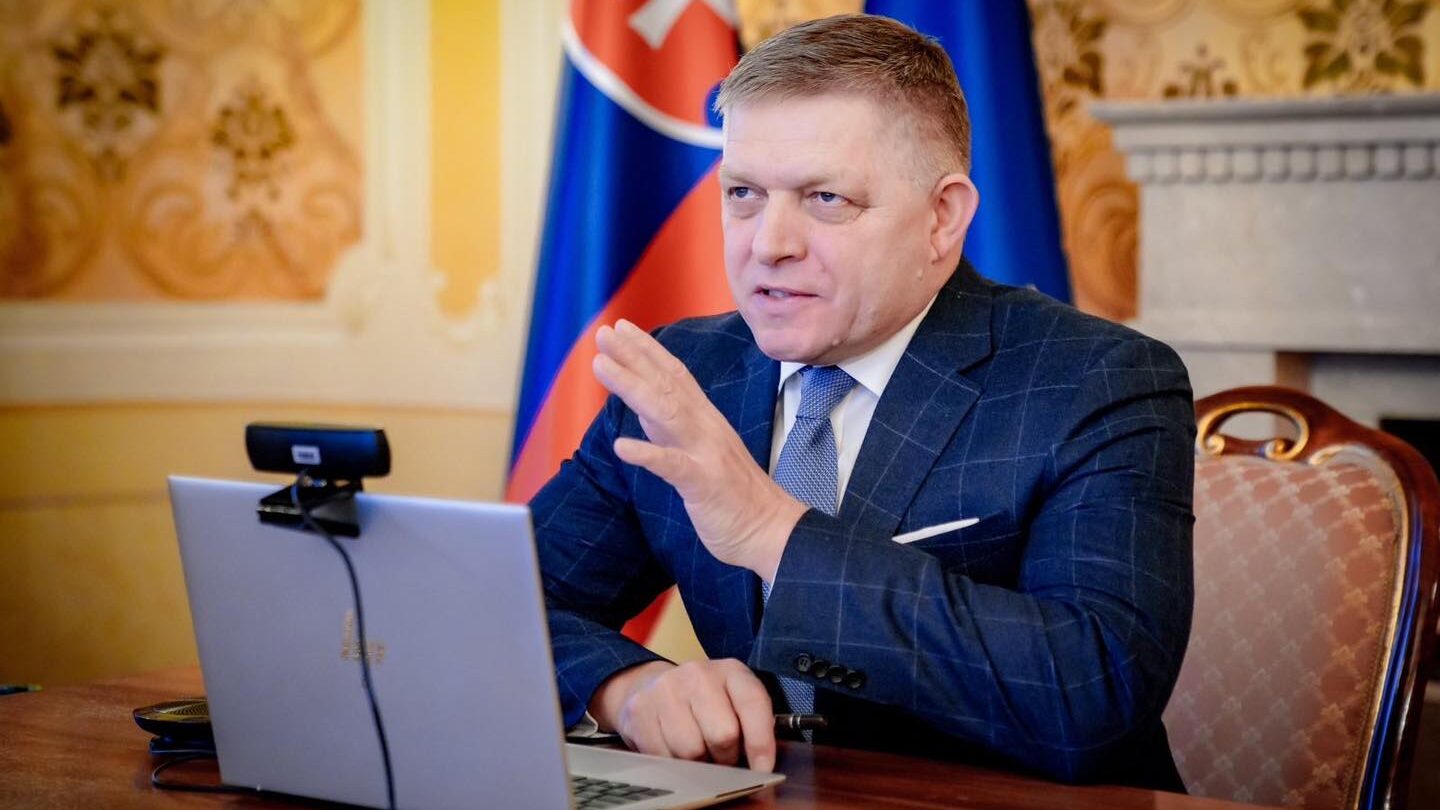
Slovak PM Robert Fico.
Photo: Robert Fico on Facebook, December 2, 2023
Slovakia’s various opposition parties have united in an effort to bring down Robert Fico’s government after his recent trip to Moscow which prompted accusations that he was turning the country against the West.
However, the opposition alone does not have enough seats to carry their no-confidence vote and hopes to gain a few rogue MPs from the three ruling parties. The parties have been embroiled in a months-long internal dispute.
The initiative is led by the leftist Progressive Slovakia (PS/Renew) and is joined by the liberal-conservative SaS (ECR), the Christian-democrat KDH (EPP), and the center-right populist Slovakia (EPP), along with other smaller parties. The representatives of these groups announced their no-confidence motion at a joint press conference on Tuesday, January 14th.
“When it comes to democracy, freedom, and the European orientation of our country, we will defend them together,” PS leader Michal Šimečka said. “We will never allow PM Robert Fico to take Slovakia somewhere towards Moscow. He does not have the authority to do so, and it is against the interests of the people of Slovakia.”
Besides the ‘eastern-oriented foreign policy’ and a ‘rhetoric of blame toward Ukraine’—despite the recent gas dispute being started by Kyiv’s decision to halt deliveries to the country—the opposition leaders pointed to rising inflation and the country’s general economic situation as to why Fico and his government need to go.
But beneath all the big words, it’s clear that the opposition just simply wants to take advantage of the current internal dispute over ministerial posts between the Fico-led Smer’s two junior coalition partners, the social democrat Hlas-SD and the nationalist SNS. The recent departure of three MPs from the latter left Fico with only a wafer-thin majority of 76 seats in the 150-member parliament. So, with the government already crumbling, the opposition merely wants to speed things up a bit.
It is telling that they came forward with the noble plan to save the country from becoming a Russian proxy just two days after Fico floated the idea of a government reshuffle or even snap elections to nudge his unruly allies toward an agreement. The opposition clearly saw this as a final sign of weakness, hence Tuesday’s announcement. The parties, however, have only 71 votes between them, so they would need to convince a few more MPs from the ruling parties if they want to succeed.
The prime minister said he was ready to take part in an extraordinary parliamentary meeting to discuss the no-confidence motion as well as a resolution to strengthen the country’s commitment to the West and Ukraine.
The opposition party PS wanted to hold the meeting as soon as Wednesday, January 15th, but the plan failed as not enough of its allies showed up for the vote. Fico, who seems unfazed by the challenge to his leadership, suggested January 21st as the earliest possible date, but the opposition parties decided to delay the meeting to February 4th, the beginning of the next regular parliamentary session.
The delay gives both sides time to prepare and strategize. Fico is likely to pursue some kind of government reshuffle that would solve the conflict and strengthen his majority. So far, his threat of holding snap elections seems to have worked as intended. Internal Minister and Hlas leader Matúš Šutaj Eštok is already showing a much greater willingness to come to an agreement with the SNS, saying another election would only betray the voters’ trust and the issue needs to be solved within the coalition.
